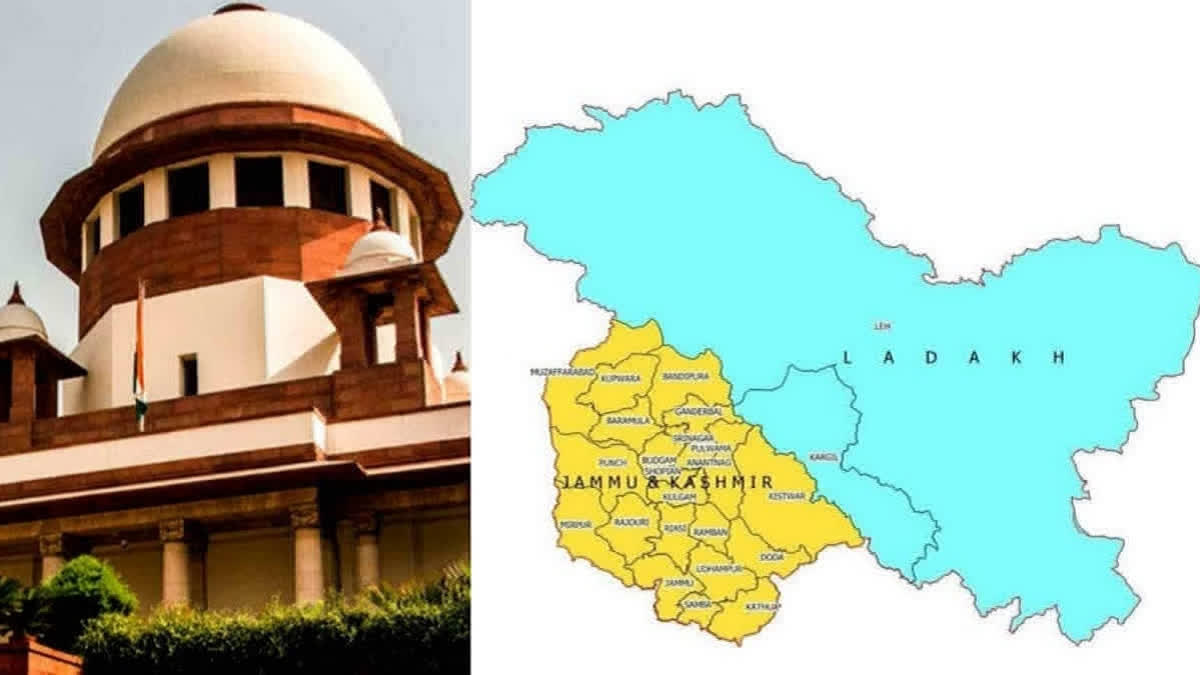New Delhi: In a significant development, the Central government is poised to spell out a projected timeline for the restoration of statehood to Jammu and Kashmir (J&K) before the esteemed Supreme Court today. This long-awaited announcement comes after more than four years since the region's transformation into a Union Territory, a move that had sparked widespread debates and discussions.
The imminent disclosure is expected to be delivered by India's Solicitor General, Tushar Mehta, as he addresses a constitution bench currently engaged in deliberating a series of petitions challenging the abrogation of Article 370 – the provision that had endowed Jammu and Kashmir with its unique constitutional status. On a preceding Tuesday, Mehta had revealed his intention to make a "positive statement" on the forthcoming Thursday, subsequent to his consultations with the government. The statement is projected to encompass a tangible timeline for the re-establishment of statehood that had been revoked in 2019.
Mehta, during the prior hearing, communicated to the court that the status of a Union Territory for Jammu and Kashmir was not intended to be a permanent arrangement. He pledged to make a positive assertion concerning the matter while reiterating that Ladakh would persist as a Union Territory. The constitution bench, spearheaded by Chief Justice of India, DY Chandrachud, has been dedicating daily sessions to hear the range of petitions and arguments presented.
In the preceding session, the Supreme Court had underlined the urgency of re-establishing democratic processes in J&K, which had remained devoid of an elected government since June 2018. The court raised pertinent questions regarding the legitimacy of converting a state into a Union Territory and subsequently inquired about the feasibility of scheduling elections in the region. The need for clarity and a specific timeline regarding the restoration of full democratic practices was emphasized, with the court seeking assurance from the Solicitor General.
Chief Justice Chandrachud, while acknowledging the significance of national security concerns, advocated strongly for the reinstatement of democratic norms in the region. Since 2018, Jammu and Kashmir has been under direct administration by the central government, which led the Chief Justice to stress the importance of striking a balance between security imperatives and democratic governance.
The courtroom arena has witnessed a robust legal confrontation between the government's legal representation, including the Attorney General and Solicitor General, and a contingent of senior lawyers defending the petitioners. Legal luminaries such as Kapil Sibal, Gopal Subramanium, and Rajeev Dhavan have been advocating for the petitioners' concerns.
Central to these arguments is the procedural legitimacy of the abrogation of Article 370 and the subsequent bifurcation of the state into two Union Territories, namely Jammu and Kashmir and Ladakh. This foundational question has driven the legal discourse, underscoring the necessity of ensuring due process was followed during the state's reorganization.
However, the government's assertion that Ladakh will remain a Union Territory has met with disappointment and discontent among leaders and petitioners from the region. Over the past couple of years, Ladakh has been a hotbed of protests, with demands for statehood echoing throughout the region. The Solicitor General's statement reaffirming Ladakh's status has sparked concerns among those yearning for greater autonomy and governance.
The backdrop for this ongoing legal and constitutional saga is the Modi government's decision to scrap Article 370 in August 2019. Amidst the scrapping of this provision, the government had assured the populace of Jammu and Kashmir that statehood would eventually be reinstated at an opportune time. This assurance has been reiterated by Home Minister Amit Shah, yet a concrete timeline for the execution of this promise is yet to be determined. As the legal proceedings continue and the government readies its timeline, all eyes remain fixed on the Supreme Court's deliberations and the ensuing implications for the future of Jammu and Kashmir.



